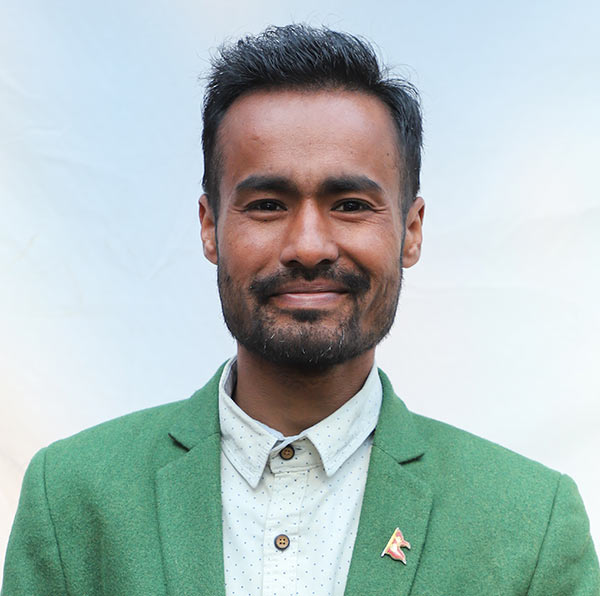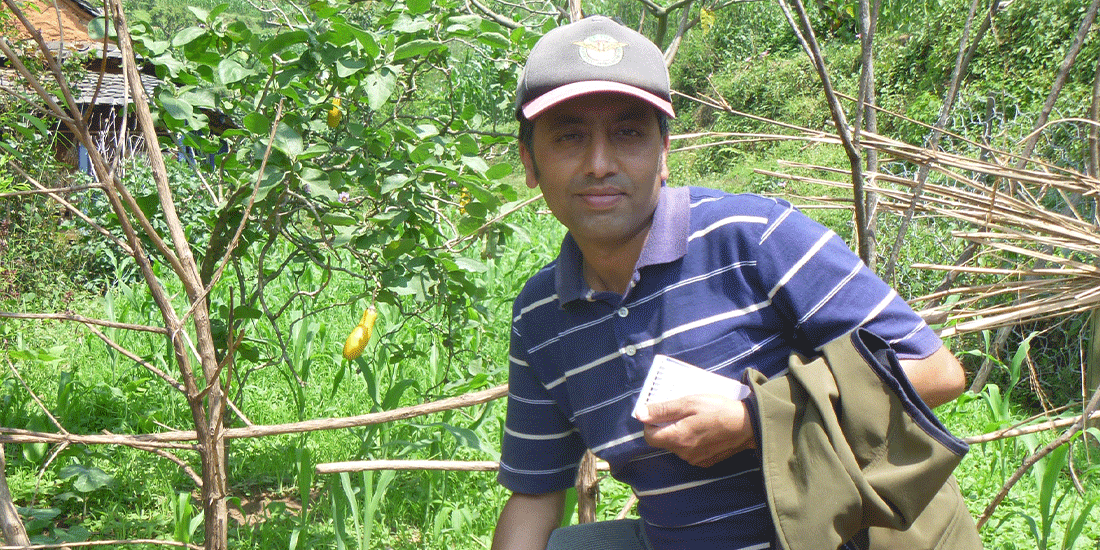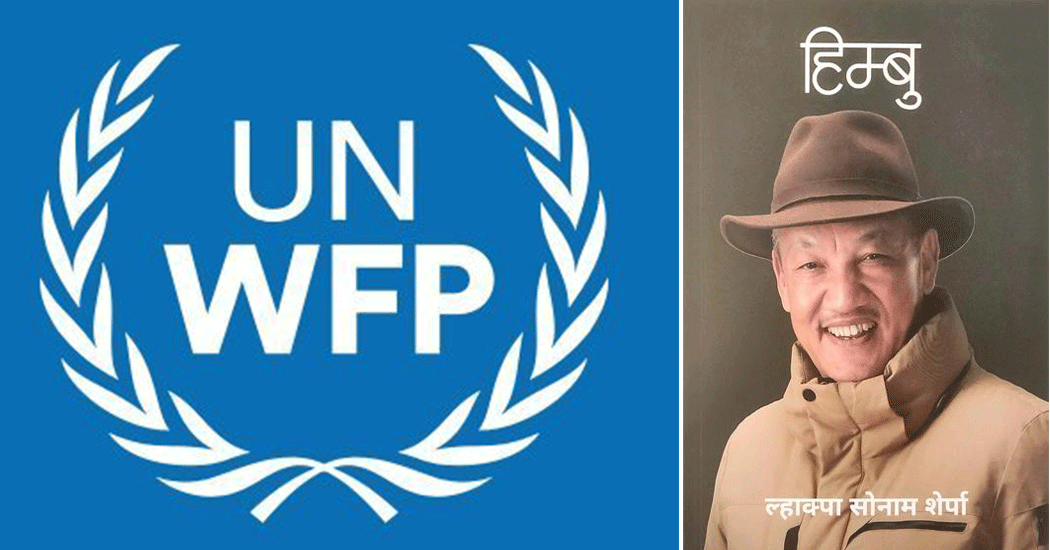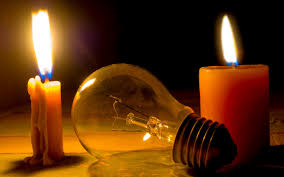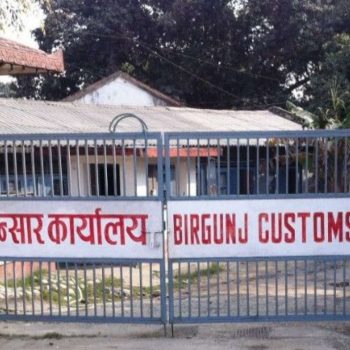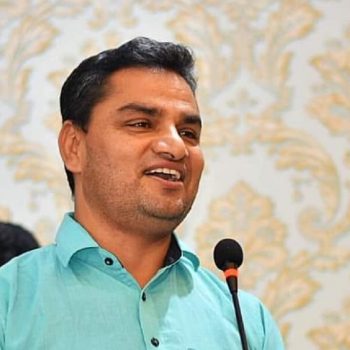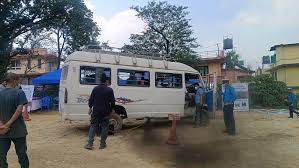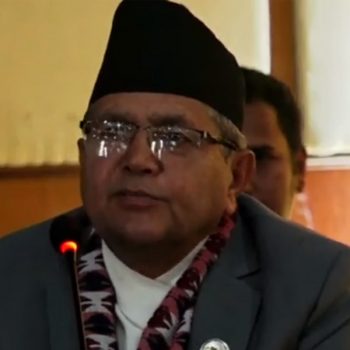Nepal should stand against Myanmar’s Military rule: Myanmar Expert Nalbo
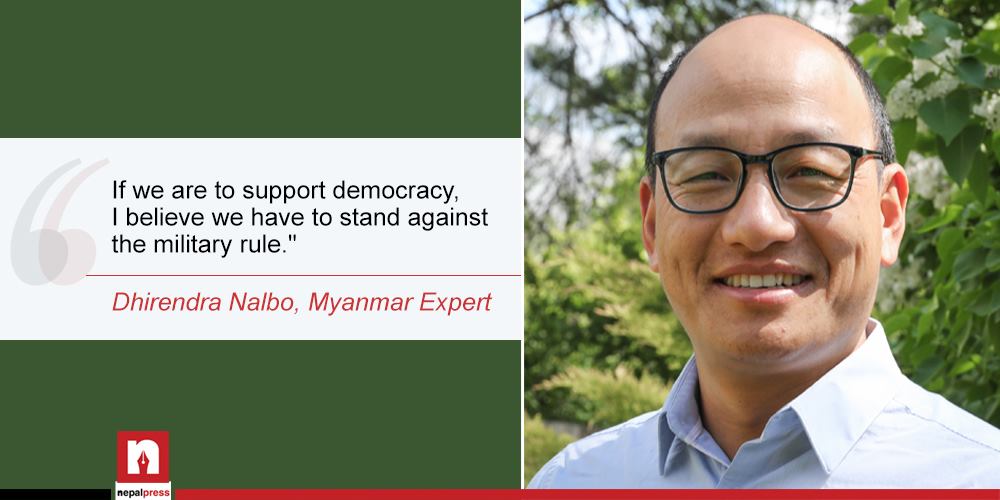
Myanmar’s military has seized power, stating that the election was rigged. The international media has dubbed it a ‘Coup’. The military says it has taken control of Pro-democracy leader Aung San Suu Kyi and has handed over power to the Vice President.
What will be the democratic future of Nepali-speaking majority in Myanmar? What will be the role of China and the United States in this development? What should the position of Nepal be?
In these dimensions, Nepal Press had a conversation with Dhirendra Nalbo, who has a doctorate from George Mason University in the United States on the role of natural resources and peace building in Myanmar. Nalbo researches on social, political, natural resources as well as issues related to peace and conflict. He also teaches at the Open Institute for Social Sciences.
How do you see the state of events in Myanmar?
This can now be officially ruled a ‘Coup’ because it has been declared that the army will rule the country for one year. There is no doubt that this is a ‘Coup’, and it has to be considered the same after the military has made the above statement.
How do you think international power is divided over Myanmar’s Military?
I don’t think China will show any negative behavior right now. China wants to secure investment in Myanmar. As China has more geopolitical interests than just economics, it will not want to generate any rifts with the military.
Fighters from the Northern Kachin state have fled through Yunnan Province. Some states have recruited their own peace envoys. China has a big influence in other states as well. China will not immediately react to the move in order to balance geopolitical power, so that it does not nger the military.
When the then military ruler took the stand that Burma (Myanmar) should now move towards democracy in 2011, the military perceived that its economic and strategic dependence on China had deepened. China does have influence on some of their military decisions.
From this, it is understood that the army has to adopt democratic pathways in order to get itself out. In international politics, the Obama administration had improved relations with Myanmar through Hillary Clinton, using the Asia Pivot foreign policy. Gradually, the restrictions were relaxed. However, Trump’s US First policy affected this relationship.
Referring to the 2008 Myanmar constitution, everyone is saying that when the state feels insecure about its sovereignty, the National Defense and Security Committee should hand over power to the military. Now the president has been arrested and a legal battle has erupted over power being handed over to the Vice President. The military always stands behind the Vice President.
There is also a legal dispute over the transfer of power to the Vice President without consulting the President. There may be a legal battle going on, but there is no doubt that this is a ‘Coup’. .
How can the international community be divided over this issue?
China will not speak immediately. Asian democracies, some human rights organizations, and democracies in the west have opposed the move. However, Russia and China have not spoken. Japan, which ruled during World War II, has not spoken either, as it also has vested interests.
What is the ‘action’ that the United States is talking about regarding Myanmar’s Coup?
The military had said that the election was rigged previously too. However, after that allegation, the party called Union Solidarity and Development had filed a case in the high court. The army did not show any evidence when the Union Election Committee had shown evidence of electoral fraud. Right now, Biden may have spoken in his defense. Many have the understanding that the election was not rigged.
I think the United States may start imposing restrictions, like those in place before 2011. Biden may be saving his face now. These restrictions are probably the ‘action’ that the US is talking about.
The military has not truly handed power over. What do you think about the understanding of some that this is a Military Coup?
We have to look back at the 2008 constitution in this regard. There are some sections that have mostly been referred to. Ministers of the three powerful ministries will be appointed by the army, including defense and home. The structure and framework of the Ministry of Home Affairs has spread to local levels.
The army will decide on how to govern the country. The Vice President will also be someone that the military wants. According to the Constitution, the army will appoint 25 percent of the Members of Parliament. With the 2008 constitution giving it so much power, there is no reason for the military to be intimidated. It is understood that the army ruled unwillingly. The army that ruled for decades was not pleased.
How do you see the future of Myanmar’s politics and democracy?
We have to look at it from two angles; one is from a regional perspective. Let’s look at ASEAN members from a regional angle. Thailand, Cambodia, Vietnam, Singapore, Malaysia, Philippines, Indonesia are members. Looking at the present and past of all these countries, it is found that the western model of democracy has not always been followed. Regional politics also affects Burma. Myanmar does not consider it necessary to move towards pure democracy.
Internally, Myanmar is the country with the largest armed soldiers and military presence in Asia, where there are more than 21 armed combat squads. They are holding peace talks with the government. I don’t think democracy will be handed over in such a country for a few decades. Now, however. I see the future of democracy as uncertain. It is difficult to understand what will happen after one year.
How should Nepal deal with Myanmar’s Military Coup?
The Nepali-speaking community in Nepal is integrated in two states, rather than spreading out. I have met Nepalese mostly in favor of democracy. Most of them are in favor of democracy. They call Aung San Suu Kyi “Aama” or “Didi”, meaning mother or sister. For those who are pro-democracy, it is going to be difficult. This will affect them a lot. These are Nepali-speaking people, who carry out business together.


